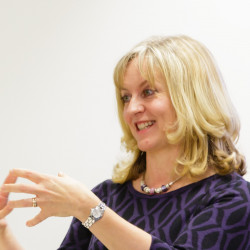Success factors for the new world of work
 The world of work has undergone a seismic shift. New technology, economic challenges and globalisation have created a very different workplace and posed some significant challenges for organisations.
The world of work has undergone a seismic shift. New technology, economic challenges and globalisation have created a very different workplace and posed some significant challenges for organisations.
Disruptive forces have impacted on levels of engagement, productivity and the retention of key talent. And change continues to accelerate at an increasing rate. I believe a new model is required for the next generation workplace that takes a fresh approach to how we develop individuals, groups and organisations.
So what are the success factors that will help deliver this change? And how can we create new connections between people and the organisations they work for? From our experience, a stronger consideration of the following elements will ultimately determine the readiness of organisations to meet that future challenge.
- Ingenuity: valuing the ability to create new thinking within constraints
- Collaboration: valuing group working and cooperation
- Adaptive capacity: valuing the ability to learn from, and respond to, the environment
- Voice: valuing the views and input of all individuals
- Connectivity: valuing availability of information and new communication pathways
- Community: valuing our place within the wider community
So if these factors are fundamental to success in our current and future world of work, why are they not always in evidence? Most successful organisations do demonstrate these at some level of course, though often in ‘pockets’ or inconsistently. For most organisations, there are in-built barriers to adopting new behaviours and actions in a widespread and holistic way. These include inappropriate structures and people processes that reinforce old ways of working.
Traditional performance management, for example, by its nature tends to reinforce the ‘top down’ mentality and lacks a focus on collaboration. Personal and organisational politics also plays its part in ‘muscling out’ any threat to existing power and territory boundaries. Also, the sense of investment in the status quo means business leaders and managers often feel disinclined to move into new territory, with the perceived risk that goes with it. This often requires the need to shift to a ‘what got us here won’t get us there’ mentality and to work to let go of the less helpful behaviours and working practices.
The successful organisations of the future won’t necessarily be the biggest or the strongest, but they will be the smartest and most responsive. So we need to create a new proposition; one that will stand us in good stead for now and whatever the future may bring. If organisations are going to thrive and play their role within the wider community, we need to lift our heads up, recognise and build on the good, eliminate the bad and move forward with intelligence, flexibility and heart.
